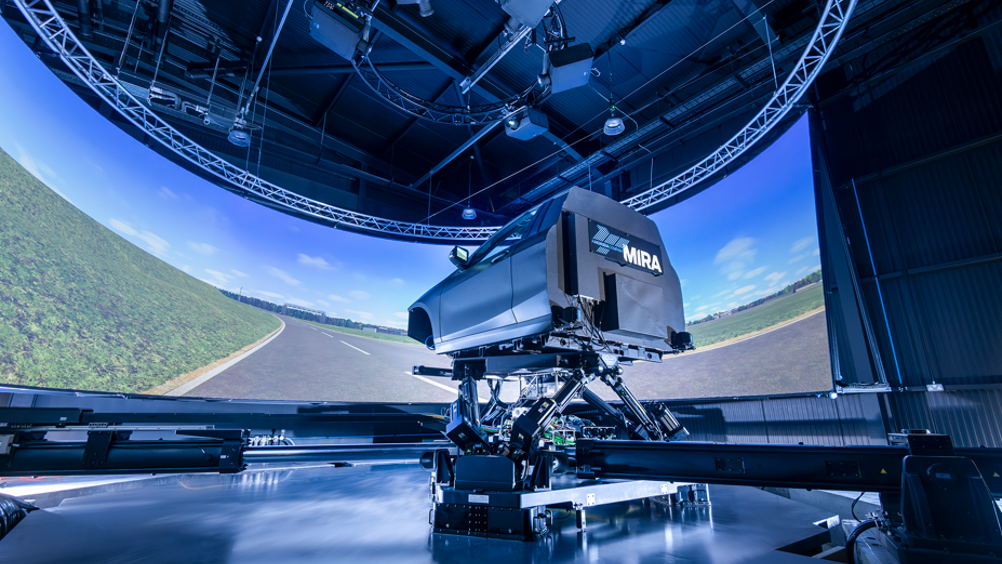Positive feedback: At the wheel of HORIBA MIRA's advanced driving simulator
HORIBA MIRA’s new advanced simulator puts driver feedback in the loop at the earliest stages of vehicle development. Andrew Wade reports.

The automotive industry is currently undergoing one of the biggest overhauls in its history. Not since the Ford Model T and the dawn of mass production has such a shift been felt, with electrification compelling manufacturers to rethink vehicle architectures, supply chains and plant operations. But the sector’s rapid evolution has inevitably brought challenges, not least around the testing requirements for the avalanche of new vehicles coming to market.
Thankfully, a concurrent and equally rapid transformation has been happening in digital engineering. Advances in design software, digital twins and simulation have seen increasing volumes of work transferred to the virtual realm, where lines of code can be tweaked and tested ad infinitum before physical products are manifested. Where though, you may ask, does this gospel of digitalisation leave the driver? In the haze of ones and zeros, how can carmakers ensure that driver experience remains holy?
Register now to continue reading
Thanks for visiting The Engineer. You’ve now reached your monthly limit of premium content. Register for free to unlock unlimited access to all of our premium content, as well as the latest technology news, industry opinion and special reports.
Benefits of registering
-
In-depth insights and coverage of key emerging trends
-
Unrestricted access to special reports throughout the year
-
Daily technology news delivered straight to your inbox











National Gas receives funding to develop Gravitricity underground hydrogen storage system
One single rock salt mine - Winsford - has 23 <i>MILLION </i>cubic metres of void and even allowing for 10% of that void set aside for hazardous waste...